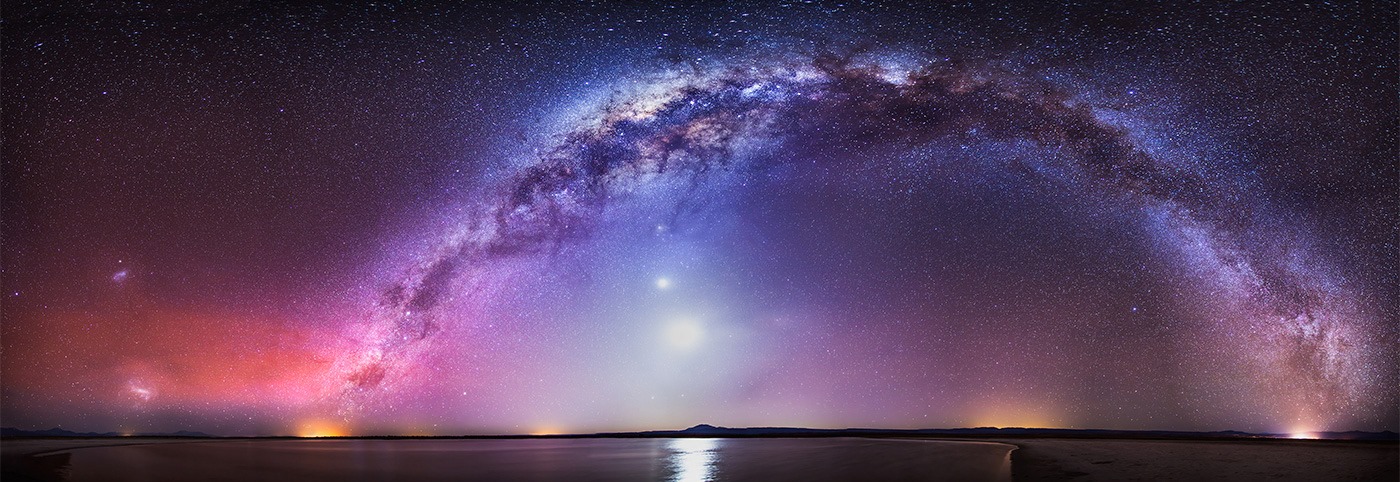Lynds Dark Nebula 1251
Stars are forming in Lynds Dark Nebula (LDN) 1251. About 1,000 light-years away and drifting above the plane of our Milky Way galaxy, the dusty molecular cloud is part of […]

Stars are forming in Lynds Dark Nebula (LDN) 1251. About 1,000 light-years away and drifting above the plane of our Milky Way galaxy, the dusty molecular cloud is part of […]
The Old Astronomer’s Milky Way arcs through this peaceful northern sky. Against faint, diffuse starlight you can follow dark rifts of interstellar dust clouds stretching from the galaxy’s core. They […]
Has your world ever turned upside-down? It would happen every day if you stay fixed to the stars. Most time-lapse videos of the night sky show the stars and sky […]
What created this unusual planetary nebula? NGC 7027 is one of the smallest, brightest, and most unusually shaped planetary nebulas known. Given its expansion rate, NGC 7027 first started expanding, […]
When the lake calmed down, many wonders of the land and sky appeared twice. Perhaps the most dramatic from the dark sky was the central band of our Milky Way […]
What are those spots on Jupiter? Largest and furthest, just right of center, is the Great Red Spot — a huge storm system that has been raging on Jupiter possibly […]
The dark shadow of the New Moon reached out and touched planet Earth on June 21. A high definition camera outside the International Space Station captured its passing in this […]
Want to watch a solar eclipse safely? Try looking down instead of up, though you might discover you have a plethora of images to choose from. For example, during the […]
On June 21 an annular solar eclipse came soon after the solstice and our fair planet’s northernmost sunset for 2020. At maximum eclipse, the New Moon in silhouette created a […]
How could that city be upside-down? The city, Chicago, was actually perfectly right-side up. The long shadows it projected onto nearby Lake Michigan near sunset, however, when seen in reflection, […]